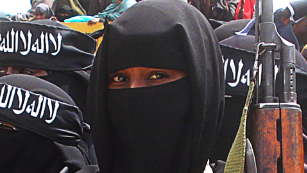Ottawa has dropped the ball in the prison-transfer of a Canadian citizen serving a lifesentence in Ethiopia, according to Said Maktal, a cousin of the prisoner.
Maktal criticizes Ottawa of not vigorously pursuing the transfer, saying that new minister of foreign affairs has no interest in his cousin’s fate.
Maktal says that both Foreign Affairs Minister Rob Nicholson and Public Safety Canada Minister Steven Blaney should be doing more to bring home his cousin.
A prisoner-transfer agreement was accepted in early March by Bashir Makhtal, said Said Maktal. And he was told then that his cousin might be home this fall, possibly before the Oct. 19 election.
But so far there has been little movement on the transfer agreement, Maktal said. And he believes there’s only one reason for that — a lack of interest in the case.
Neither Nicholson nor Blaney responded to the Star’s requests for a comment on Maktal’s criticism of their efforts to return his cousin to Canada.
François Lasalle, a spokesperson for Foreign Affairs, told the Star that “to protect the privacy of the individual concerned, further details on this case cannot be released.”
Similarly, Zarah Malik, a spokesperson for Public Safety Canada, told the Star that “the Privacy Act prevents federal government officials from discussing the specifics of an offender’s case.”
Maktal said he has repeatedly called both Foreign Affairs and Public Safety Canada — which is responsible for international prison transfers under the International Transfer of Offenders Act — looking for answers.
He has been told by Public Safety officials that they are working on the case, but won’t give him specifics or tell him if the minister of foreign affairs and the minister of public safety have signed the required paperwork or if it has been sent to Ethiopia.
“The only person who was interested in the case left the office — which was John Baird— and after that nothing has happened with the case,” said Maktal, referring to the former cabinet minister who is now working in the public sector. “I think the government is purposely delaying the case . . . After eight and a half years the problem isn’t Ethiopia. The problem is in Canada.”
Bashir Makhtal, a 46-year-old who lived and worked in Toronto, has been languishing in an Ethiopian jail in Addis Ababa since he was convicted of terrorism in 2009. He has always denied the charges.
Makhtal was arrested on the border of Kenya and Somalia in 2006 after fleeing Mogadishu and the fall of the Islamic Courts Union.
He was questioned in Nairobi and eventually put on a top-secret flight to Ethiopia where he was charged with multiple counts of terrorism for allegedly being a ringleader with the Ogaden National Liberation Front — an ethnic Somali group formed to fight for independence in the oil rich region.
Baird took an interest in the case long before he was foreign affairs minister, proclaiming Makhtal’s innocence. He visited Addis Ababa, and met with Makhtal in 2010.
“When John Baird was the minister, this case was clearly an important case for him,” says Makhtal’s lawyer Lorne Waldman. “He prioritized it because of the strong Somali community in his riding and he made it clear he was committed to the case. After he left from what we can see no one has taken any interest in the file.”
The decision to accept the transfer followed an impassioned plea in late January to Prime Minister Stephen Harper to intervene, which failed.
Makhtal was offered the deal two years ago, but rejected that option last year because he said he was innocent.
But since then his health has rapidly deteriorated and he decided to accept the terms of the prison transfer which would see him serve five more years in a Canadian prison, said Waldman.
After Makhtal made his decision, Waldman confirmed with officials in Public Safety Canada that his client wanted to proceed. Canadian consular officials also confirmed with Makhtal in Ethiopia that he accepted the terms as well, his cousin said.
“From then until now we haven’t heard anything, zero,” said Waldman. “It’s gone into a black hole. It was already approved. It was just a matter of going forward. I can’t understand the delay at this point.”







